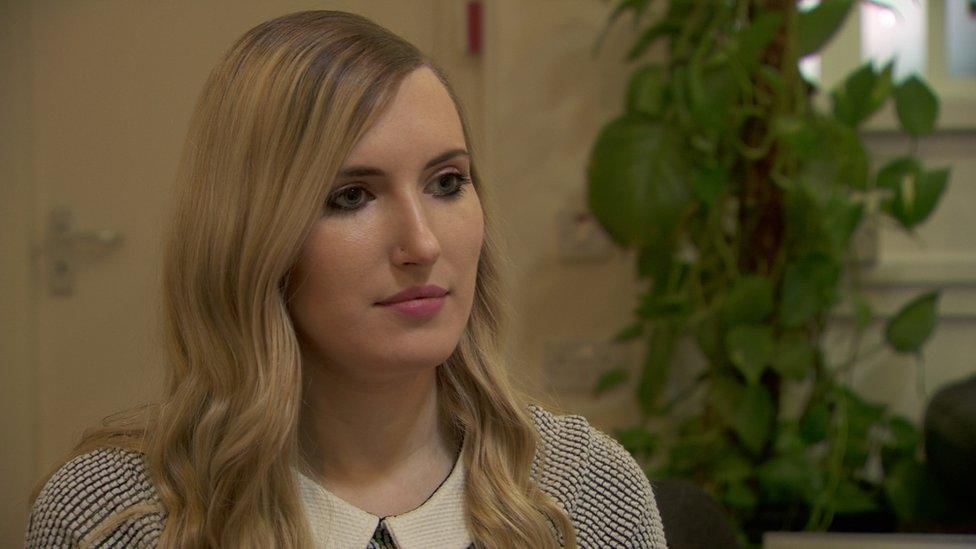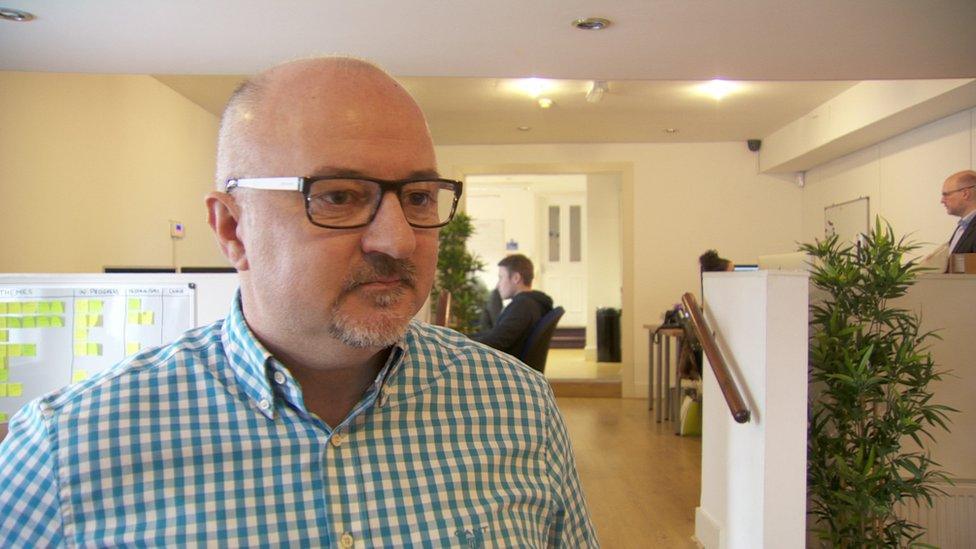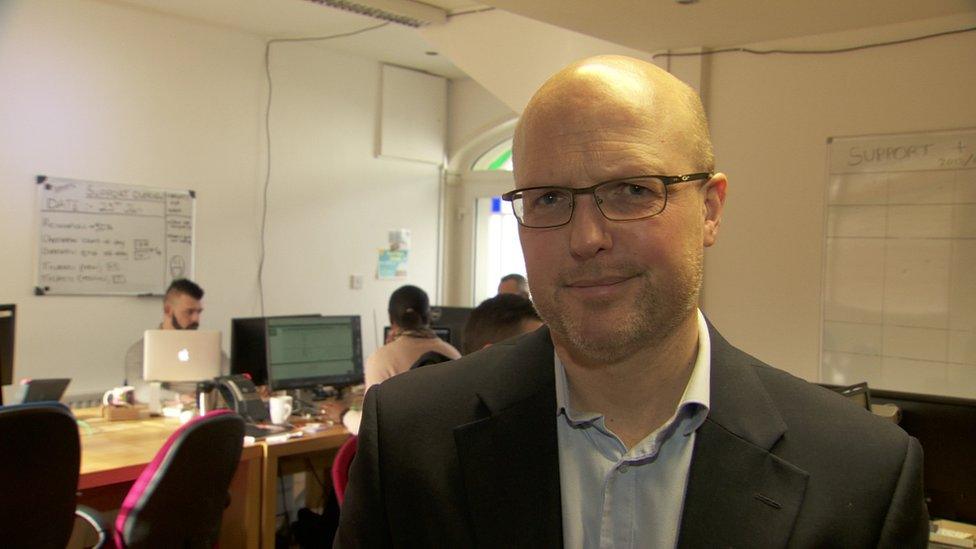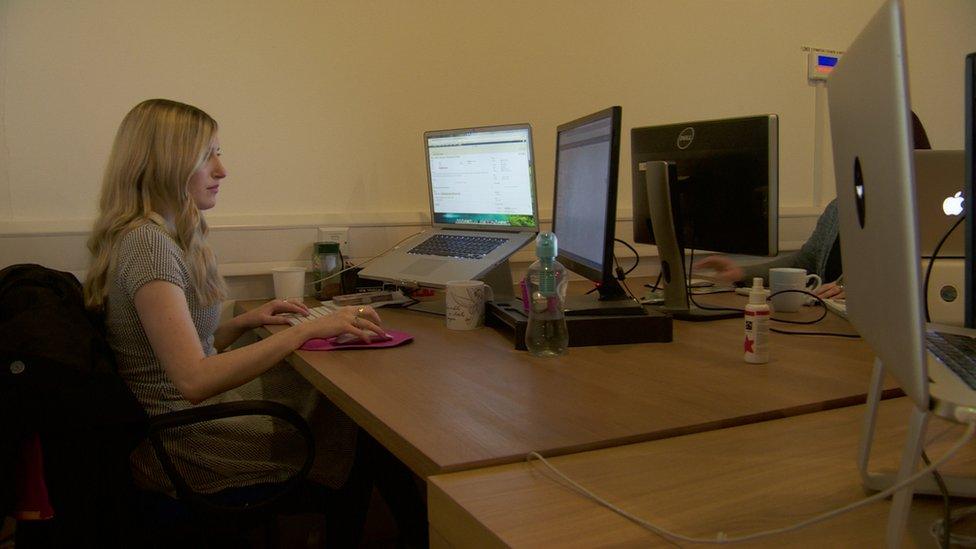Asperger's syndrome: Employers need awareness of challenges
- Published

Shelley Corrigan has a first class honours in bio-medical engineering
A County Down woman who has Asperger's syndrome has said employers must be made more aware of the challenges faced by those living with autism.
Shelley Corrigan, 28, has a first class honours in bio-medical engineering.
Despite the qualification, getting through a job interview was Shelley's biggest challenge.
She said living with the condition means she faces a number of issues when faced with an interview.
According to Shelley, there are times when she is extremely anxious, shy and has problems communicating.
"I always found the interview process difficult. While everything looks good on paper and on your CV when I was going through an interview I struggled cause I couldn't get the words out," she said.
Ms Corrigan is one of about 50 adults who have benefited from the support of Specialisterne NI, a specialist recruitment and training consultancy that places and supports people with autism.

Jonny McBride works with employers to make them aware of the issues facing those on the autism spectrum
Specialisterne is a not-for-profit company that works alongside both the employer and the employee, helping to break down the barriers associated with autism.
Jonny McBride said as well as helping people get jobs they are currently working with about 400 employers, providing advice on what traits to look out for.
"We advise employers about the difficulties around making eye contact, communication skills and just dealing with lots of people in a workplace," he said.
"It's very important that both parties understand each other because we want to make sure that the relationship works for both."
'Fidgety'
Shelley has been working for Tascomi, a software development company in Hillsborough, since 2015. .
"I wasn't able to talk in front of or out loud to people until my late teens. I struggled with eye contact and I was very fidgety," she said.
"I always came home crying from school if there were social events I had to go to, because I just knew I couldn't communicate the way I wanted to.
"While everything was in my head I couldn't get the words out. Also, sometimes people would smirk or just make me feel uncomfortable."

Richard Martin is the managing director of Tascomi
Shelley said getting help with interviews and just being supported prior to and after interviews helped enormously.
"Everyone is a lot more accommodating to my needs. As a result of getting the job, I feel valued, independent and I now socialise. It's great, I love working here," she said.
Richard Martin is the managing director of Tascomi.
'Highly-skilled'
The company has a workforce of 40 people - two of whom are on the autism spectrum.
"We were more than happy to work with Specialisterne and tap into this pool of very talented people who are highly-skilled and benefit our company," he said.
"With Shelley we just gave her extra time in the interview to talk to us. We were aware of not making eye contact, of not asking too many indirect questions. Instead you need to be quite literal.
"Sometimes it is just about knowing in advance, knowing the parameters. Interviews are very tough and you want to help people to be able to go that extra mile."

Shelley says her confidence has been boosted and is extremely happy
Despite many initiatives to improve the number of people with disabilities in work, the employment rate of those with autism remains relatively low.
The National Autistic Society claims about 16% of adults in the UK with autism are currently in full-time jobs.
It is not known how many adults in Northern Ireland have autism or to what extent those in the workforce are on the autism spectrum.
Shelley says her confidence has been boosted and most importantly she is extremely happy.
"I am really happy because I have found a job that I love. I meet and socialise with lovely people. Before, I felt trapped. I am even running marathons now."
- Published12 November 2014
